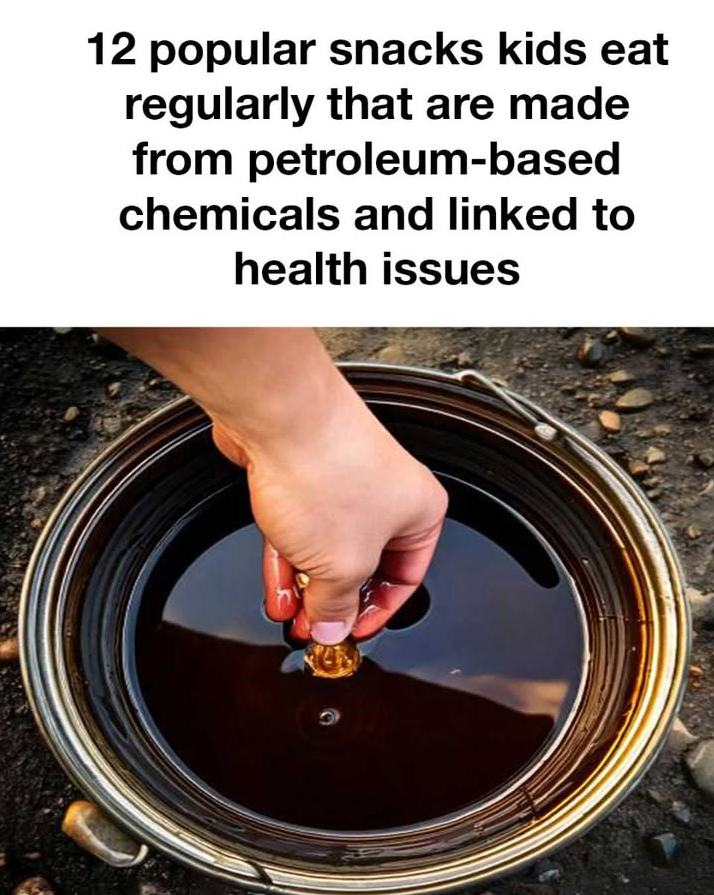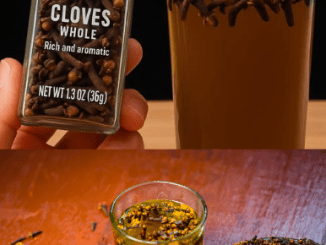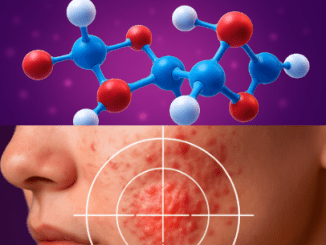
Why This Conversation Matters
In today’s fast-paced world, convenience often drives food choices—especially for kids. Colorful candies, crunchy chips, and packaged cookies might look harmless, but many of these snacks contain petroleum-based chemicals. These additives, designed to enhance flavor, extend shelf life, or brighten colors, have raised serious concerns among nutritionists and health experts. The question is: do the risks outweigh the convenience?
The Rise of Processed Snacks in Children’s Diets
Snacks are no longer just occasional treats—they’ve become everyday staples. Marketing campaigns targeting kids, coupled with busy family lifestyles, have made processed snacks a go-to option. Unfortunately, these foods often deliver more artificial additives than actual nutrients. Instead of fueling growth and energy, they can set the stage for health issues later in life.
Why Petroleum-Based Additives Are Everywhere
Artificial colors, flavors, and preservatives make snacks look better, taste more appealing, and last longer on store shelves. The problem? Many of these additives are derived from petroleum, a non-renewable resource that was never meant to be part of a child’s diet. They’re in everything from cereals to sodas, often hidden under scientific names parents might not recognize.
Health Risks Linked to Petroleum-Derived Chemicals
Researchers have connected some petroleum-based additives to troubling health concerns:
- Hyperactivity and behavioral issues in children
- Allergic reactions like hives or asthma flare-ups
- Potential cancer risks with long-term exposure
- Digestive problems and metabolic disruption
While not every additive is immediately harmful, the cumulative effect of daily exposure is where the real danger lies.
Video : Food additives exposed: The artificial dyes, colorings and chemicals to avoid | Prof. Marion Nestle
Snack 1: Colorful Candies with Synthetic Dyes
Those bright reds, yellows, and blues in candies are eye-catching—but they often come from Red 40, Yellow 5, or Blue 1, all petroleum-derived dyes. Studies have linked these to hyperactivity and mood swings in children.
Snack 2: Flavored Chips and Chemical Seasonings
Flavored chips often rely on artificial flavors and preservatives to stay fresh and tasty. While they satisfy cravings, they also deliver a chemical cocktail that can irritate the digestive system and add unnecessary stress to the body.
Snack 3: Sugary Cereals Marketed to Kids
Many cereals boast fun shapes and rainbow colors, but the Blue 1, Yellow 6, and Green 3 inside them have been flagged in studies for possible behavioral effects. Add excessive sugar, and the so-called breakfast of champions becomes a sugar-and-chemical bomb.
Snack 4: Packaged Cookies with Preservatives
Cookies often contain BHA and BHT, petroleum-based preservatives designed to keep them soft and fresh. These have been linked to cancer in animal studies and flagged as “possible human carcinogens.”
Snack 5: Fruit-Flavored Snacks That Aren’t Real Fruit
Despite the fruity images on the box, these snacks often contain artificial flavors and dyes rather than real fruit. Kids get sugar and chemicals instead of vitamins and fiber.
Snack 6: Instant Noodles with Flavor Enhancers
Fast, cheap, and tasty—but instant noodles are packed with MSG and chemical additives that can trigger headaches, allergic reactions, or worse when consumed in large amounts.
Snack 7: Chewing Gum with Artificial Sweeteners
Petroleum-derived sweeteners like aspartame and acesulfame K are common in gum. Though low in calories, they’ve been linked to headaches and potential metabolic concerns.
Snack 8: Processed Cheese Snacks with Emulsifiers
Cheese-flavored crackers and spreads often contain petroleum-derived emulsifiers to maintain texture. Regular consumption can affect digestion and cardiovascular health.
Snack 9: Soft Drinks with Artificial Colors
Soft drinks aren’t just loaded with sugar—they also often contain caramel coloring derived from petroleum. Studies suggest certain types of caramel coloring may carry carcinogenic risks.
Snack 10: Microwave Popcorn with Chemical Flavoring
That buttery aroma? Often created by diacetyl, a chemical tied to respiratory problems in factory workers and suspected health issues in consumers.
Snack 11: Snack Cakes with Stabilizers
Shelf-stable cakes stay fresh thanks to chemical stabilizers derived from petroleum. The downside? They contribute to obesity and metabolic problems with long-term consumption.
Snack 12: Energy Bars That Aren’t So Natural
Even so-called “health bars” can be filled with synthetic flavors and preservatives. While marketed as fitness fuel, many are closer to candy bars in disguise.
What the Science Really Says
Multiple studies have highlighted how these additives can affect children’s behavior, trigger allergic reactions, and potentially raise long-term health risks. While regulations differ across countries, some dyes and additives banned in Europe are still widely used in the U.S.—a red flag for parents everywhere.
Smarter Snack Choices for Children
So, what can parents do? It’s not about eliminating all fun foods, but about making informed swaps:
- Replace colorful candies with fresh fruit or dried fruit strips.
- Swap flavored chips for homemade popcorn with olive oil.
- Choose cereals made from whole grains without artificial colors.
- Offer nuts, seeds, or natural yogurt instead of packaged cookies and cakes.
- Encourage water or smoothies over sodas.
Video : Top 15 Chemical Additives in Your Food
Conclusion: Protecting Kids with Smarter Choices
The truth is simple: kids don’t need petroleum in their snacks. While food companies prioritize shelf life and appearance, parents can prioritize health by reading labels, choosing natural alternatives, and setting healthier habits at home. Brown bags filled with fruits, veggies, nuts, and whole grains may not be as flashy as rainbow-colored candies, but they fuel kids with real energy and long-term protection.


